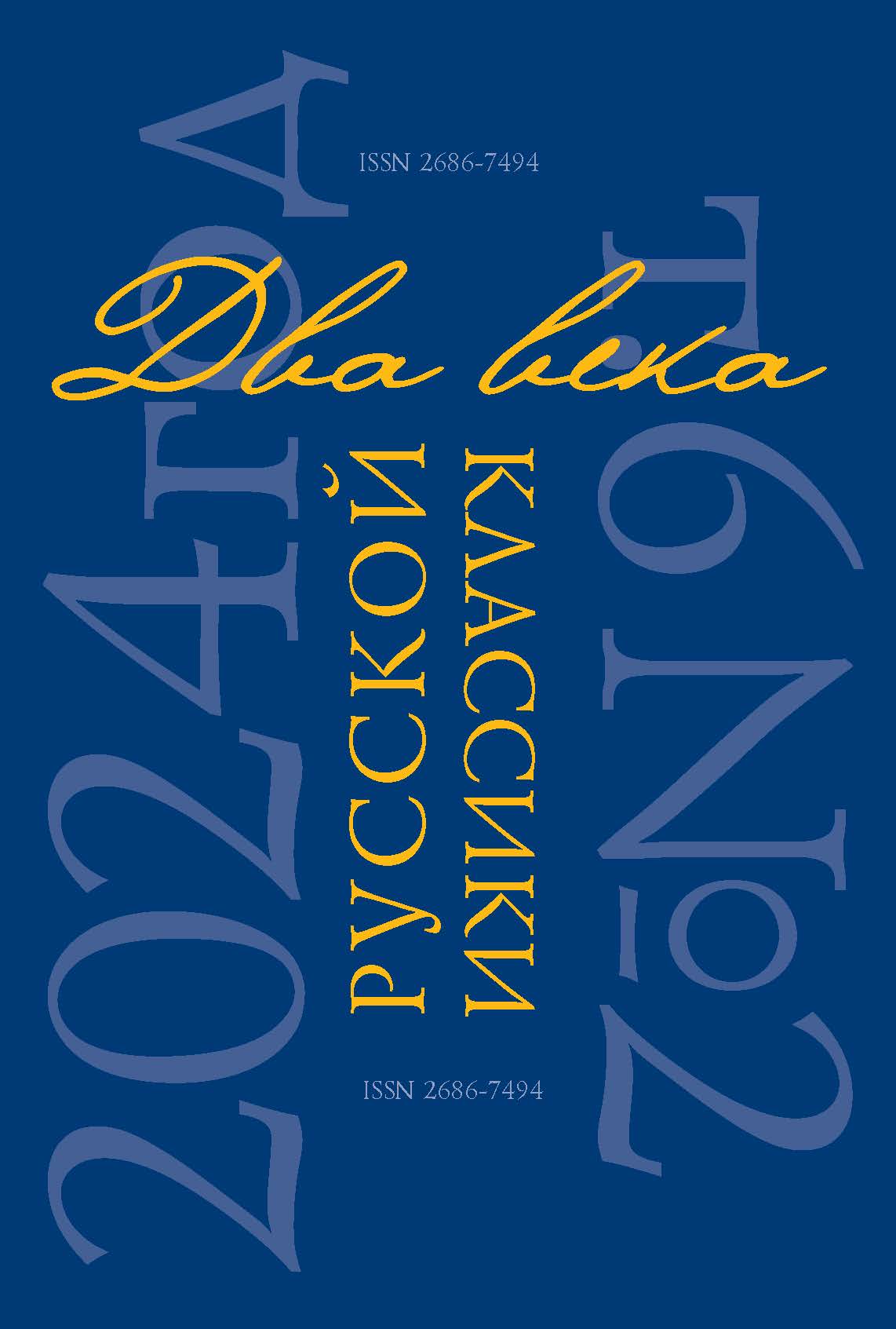Abstract:
The article focuses on a little-known poem “Flowers” by P. A. Vyazemsky. The history of the poem, its genre and content are under consideration. The works of French light poetry belonging to the subgenre “bouquet poem” and written in the period from 1803 to 1822 were taken as material for comparison. The research relevance lies in the need to consider the interaction of two phenomena of French culture, light poetry and the language of flowers, and their adaptation by Russian culture. The novelty of the research lies in highlighting the subgenre of light poetry “bouquet poem”, in considering the circumstances of creation of the poem “Flowers” and in studying the list of plants mentioned by Vyazemsky in this poem from the point of view of the language of flowers. The study showed that the poem “Flowers” could be written as a poetic tribute to the memory of the playwright Ozerov. It testifies to the strong influence of French literature on Vyazemsky’s work. In terms of structure, composition and set of loci communes, it fully meets the requirements for a “bouquet poem”. Vyazemsky was familiar with all the European traditions of the language of flowers, while he himself created new meanings for some of the plants mentioned in the poem.
References
Bondarenko, V. Viazemskii [Vyazemsky]. Moscow, Molodaia gvardiia Publ., 2004. 678 p. (In Russ.)
Gillel’son, M. I. P. A. Viazemskii. Zhizn’ i tvorchestvo [P. A. Vyazemsky. Life and Work]. Leningrad, Nauka Publ., 1969. 392 p. (In Russ.)
Ginzburg, L. Ia. “Viazemskii” [“Vyazemsky”]. Staraia zapisnaia knizhka [Old Notebook]. Moscow, Zakharov Publ., 2003. 959 p. (In Russ.)
Zaborov, P. R. “O poeticheskom nasledii P. A. Viazemskogo” [“On the Poetic Heritage of P. A. Vyazemsky”]. Viazemskii P. A. Neizvestnyi i zabytyi [Vyazemsky P. A. Unknown and Forgotten], ed. by P. R. Zaborov, D. M. Klimova. St. Petersburg, Pushkinskii dom Publ., 2013. 623 p. (In Russ.)
Maikov, L. Kniaz’ Viazemskii i Pushkin ob Ozerove [Prince Vyazemsky and Pushkin about Ozerov]. St. Petersburg, Tipografiia M. Stasiulevicha Publ., 1897. 19 p. (In Russ.)
Maiofis, M. L. Vozzvanie k Evrope: Literaturnoe obshchestvo “Arzamas” i rossiiskii modernizatsionnyi proekt 1815–1818 gg. [Appeal to Europe: the Literary Society “Arzamas” and the Russian Modernization Project of 1815–1818]. Moscow, Novoe literaturnoe obozrenie Publ., 2008. 799 p. (In Russ.)
Pakhsar’ian, N. T. Frantsuzskaia “legkaia” poeziia v epokhu Prosveshcheniia: rozhdenie intimnosti [French Light Poetry in the Enlightenment Period: the Birth of Intimacy]. Available at: http://lit-prosv.niv.ru/lit-prosv/articles-fra/pahsaryan-francuzskaya-legkaya-poeziya.htm (Accessed 08 April 2021). (In Russ.)
Tikhmeneva-Peuranen, T., Peuranen, E. “‘Arzamas’ kak forma literaturnogo obshcheniia” [“‘Arzamas’ as a Form of Literary Communication”]. Literaturnoe obshchestvo “Arzamas”: kul’turnyi dialog epoch [Literary Society “Arzamas”: Cultural Dialogue of Epochs], ex. ed. S. N. Piatkin. Arzamas, Arzamasskii gosudarstvennyi pedagogicheskii institute Publ., 2005. 296 p. (In Russ.)









